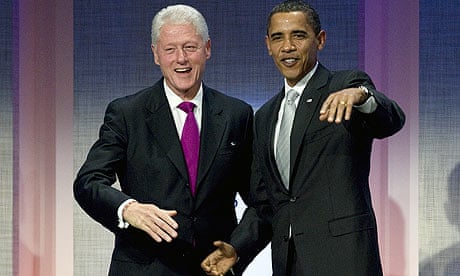Barack Obama will today seek to establish a new era for US relations with the United Nations in a speech to the general assembly, when he will warn that America cannot act alone in tackling the world's problems.
After eight years of the Bush administration, Obama has already embraced many of the policies that his predecessor rejected, ranging from signing up for the UN millennium goals on poverty to paying millions owed by the US to the world organisation.
When he delivers the opening address of the 192-member general assembly at 9am New York time (2pm UK) today, Obama is almost certain to receive a warm welcome for a speech in which he will stress the value of multilateralism, in contrast with the unilateral approach often taken by Bush.
But the president will challenge world leaders to play their part in tackling global problems, according to an excerpt of the speech released by the White House.
"Those who used to chastise America for acting alone in the world cannot now stand by and wait for America to solve the world's problems alone," he will say.
In the speech, Obama's first to the UN, the president will demand something in return for America's new international approach.
"We have sought in word and deed a new era of engagement with the world," Obama will say, echoing the co-operative theme he promised as a candidate, and has since used as a pillar of his foreign policy. "Now is the time for all of us to take our share of responsibility."
And he will list issues the world has collectively failed to tackle. "Extremists sowing terror in pockets of the world. Protracted conflicts that grind on and on. Genocide and mass atrocities. More and more nations with nuclear weapons. Melting ice caps and ravaged populations. Persistent poverty and pandemic disease."
The president will add: "I say this not to sow fear, but to state a fact: the magnitude of our challenges has yet to be met by the measure of our action."
Obama's speech is the centrepiece of a day, in which he is also due to hold pivotal meetings with the new Japanese prime minister, Yukio Hatoyama, and the Russian president, Dmitry Medvedev. Yesterday he held talks with the Chinese president, Hu Jintao.
Obama needs the influence of Russia and China in getting tougher UN action against Iran over its potential nuclear weapons programme. But neither country is showing interest.
The issue is likely to dominate today's meeting between Obama and Medvedev, according to reports in the Kommersant newspaper in Russia.
Kremlin officials told the paper the White House is deeply unhappy about Russia's plans to deliver the S-300 anti-aircraft weapons system to Iran. According to Kommersant, the Americans believe the system — which could thwart a possible Israeli air strike on Iran's nuclear facilities — significantly enhances Iran's military potential.
Obama is also likely to express unease at Moscow's recent multibillion-dollar agreements to supply rocket systems and MiG 29 aircraft to Syria, as well as tanks and other weapons to Venezuela.
Russian sources, meanwhile, have indicated that Medvedev is unlikely to make concessions following Obama's decision last week to scrap the US's missile defence shield in central Europe. But he will point out that Russia's contract to supply Iran with the S-300s is a "paper" contract, diplomats indicated.
Hopes seem to be diminishing that Washington and Moscow can reach agreement on a new strategic nuclear arms reduction treaty to replace Start-1, which expires early in December. Despite a marked improvement in US-Russian relations under Obama, Russian sources said today that there was little prospect of a deal in the next three months.
US and Russian negotiators have so far failed to agree on how many delivery systems on each side should be scrapped, as well as other technical issues such as counting and verification.
The Medvedev-Obama meeting could also be overshadowed by reports that the US is planning to build military bases in Georgia by 2015.
Russia's Independent newspaper today claimed that Georgia's president, Mikhail Saakashvili, held a "secret" meetingin New York on Monday with the US secretary of state, Hillary Clinton. Russia — which invaded Georgia last summer — remains vehemently opposed to any US military presence in its post-Soviet backyard.
The Iranian president, Mahmoud Ahmadinejad, is also due to speak at the general assembly today, when he is expected to be in defiant mood about Tehran's nuclear ambitions.
Obama previewed his message to world leaders in a speech last night to the Clinton Global Initiative. "Just as no nation can wall itself off from the world, no one nation, no matter how large, no matter how powerful, can meet these challenges alone," he said.
